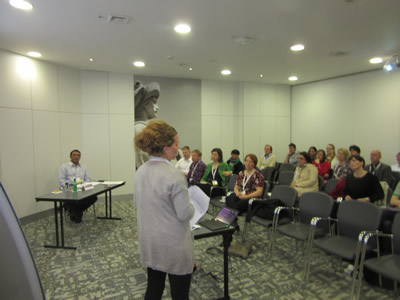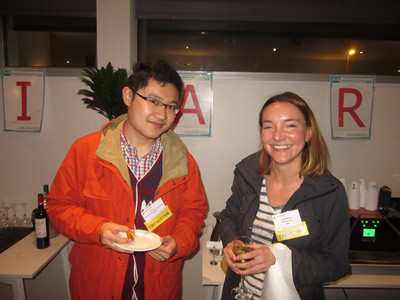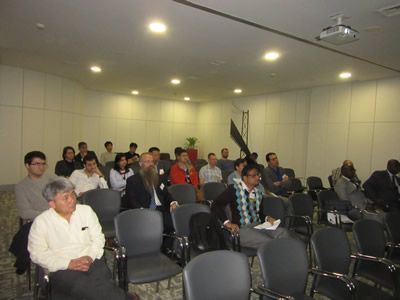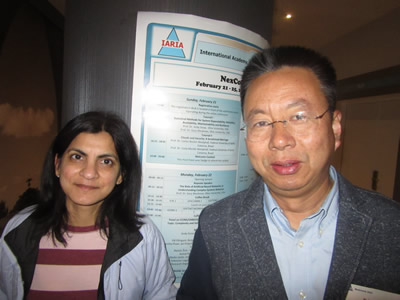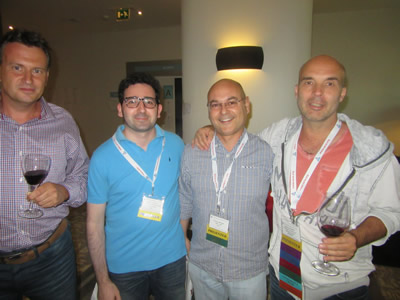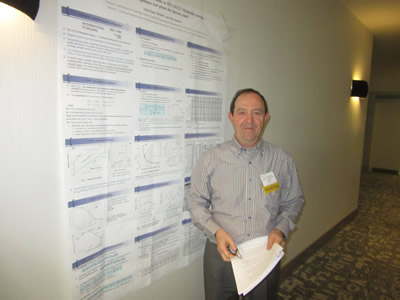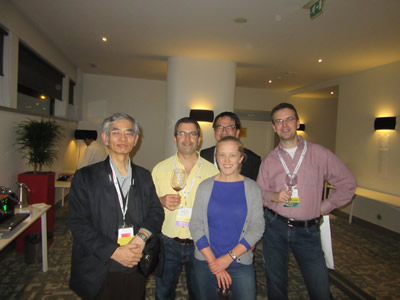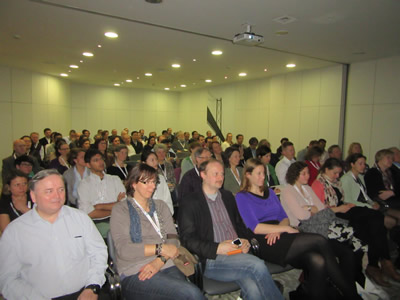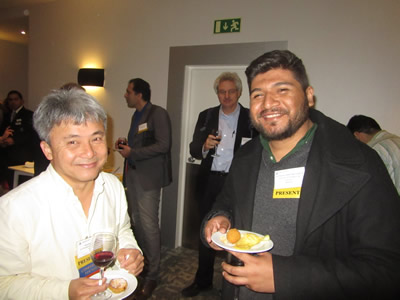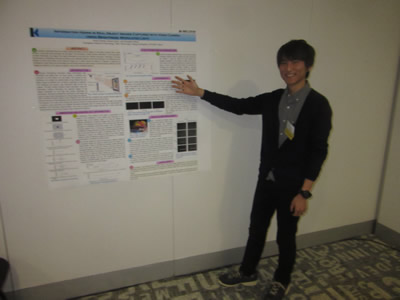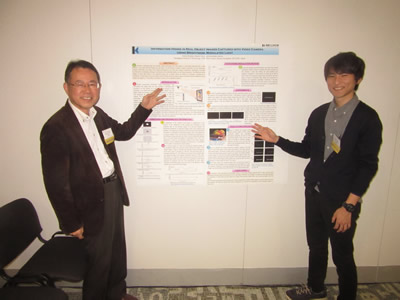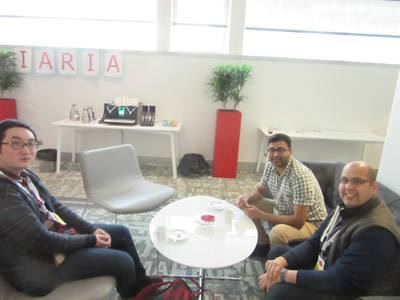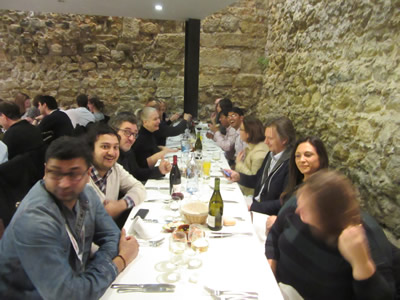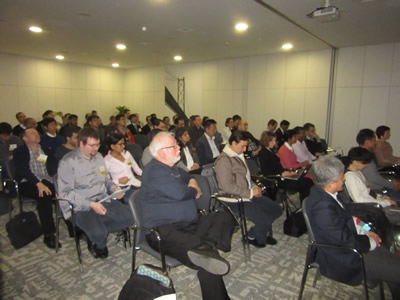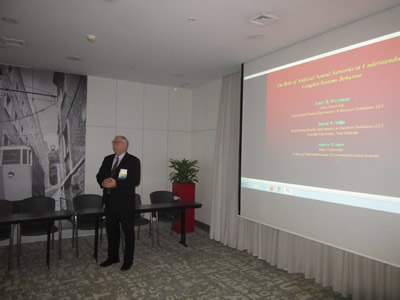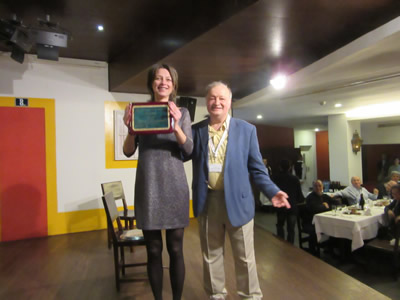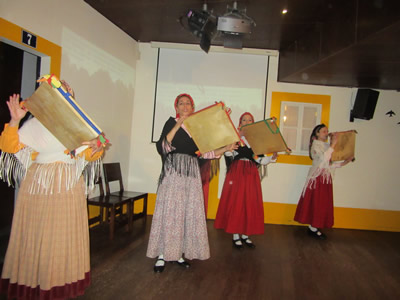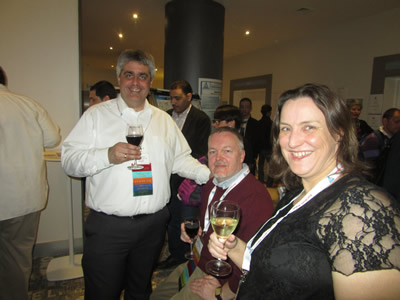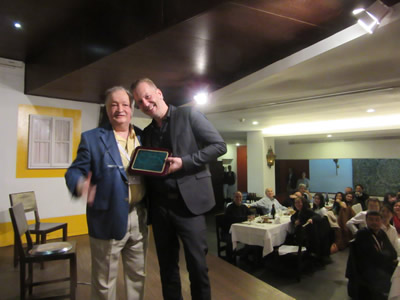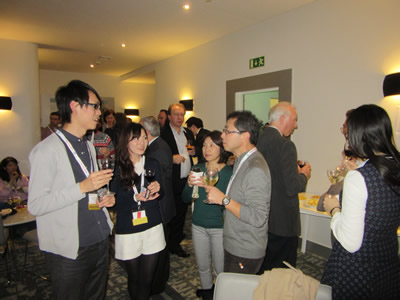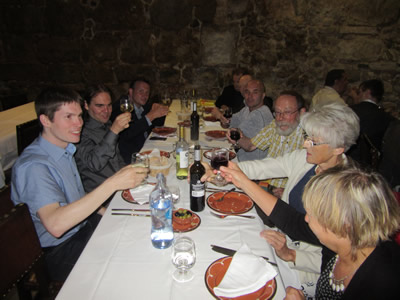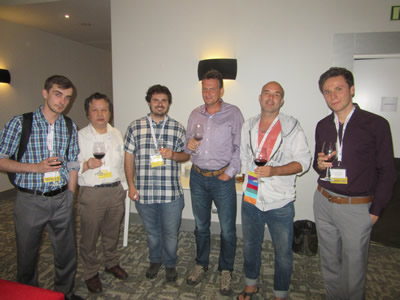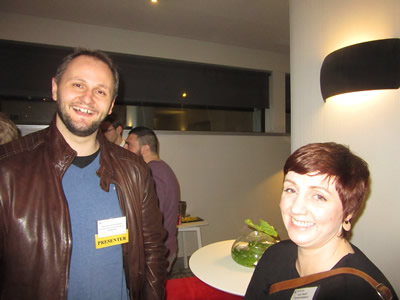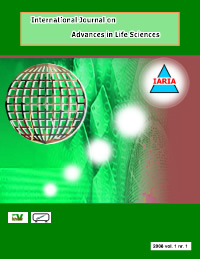HUSO 2025 - The Eleventh International Conference on Human and Social Analytics
March 09, 2025 - March 13, 2025
HUSO 2025
Onsite and Online Options: In order to accommodate various situations, we are offering the option for either physical presence or virtual participation (pdf slides or pre-recorded videos).
ISSN: 2519-8351
ISBN: 978-1-68558-238-8
HUSO 2025 is colocated with the following events as part of InfoWare 2025 Congress:
- ICCGI 2025, The Twentieth International Multi-Conference on Computing in the Global Information Technology
- ICWMC 2025, The Twenty-First International Conference on Wireless and Mobile Communications
- VEHICULAR 2025, The Fourteenth International Conference on Advances in Vehicular Systems, Technologies and Applications
- INTERNET 2025, The Seventeenth International Conference on Evolving Internet
- COLLA 2025, The Fifteenth International Conference on Advanced Collaborative Networks, Systems and Applications
- INTELLI 2025, The Fourteenth International Conference on Intelligent Systems and Applications
- VISUAL 2025, The Tenth International Conference on Applications and Systems of Visual Paradigms
- HUSO 2025, The Eleventh International Conference on Human and Social Analytics
- BRAININFO 2025, The Tenth International Conference on Neuroscience and Cognitive Brain Information
HUSO 2025 Steering Committee
|
 |
Christian Bourret
University of Paris East - Marne la Vallée (UPEM)
France
|
|
 |
Nitin Agarwal
University of Arkansas at Little Rock
USA
|
|
 |
Dennis J. Folds
Lowell Scientific Enterprises (LSE)
USA
|
|
|
|
|
 |
Christian Bourret
University of Paris East - Marne la Vallée (UPEM)
France
|
|
 |
Dennis J. Folds
Lowell Scientific Enterprises (LSE)
USA
|
|
 |
Nitin Agarwal
University of Arkansas at Little Rock
USA
|
HUSO 2025 conference tracks:
Hot topics in human and social analytics
Tendencies: Dynamic social networks; Affective computation; Knowledge computational engine for big data; Crowd emotions computation; Cooperation communities; Community evolution prediction; Discovering regional communities; Dynamic feedback mechanisms; Community structure detection; Predicting diffusion of preferences; Twitter communities; Microblogs; Influence for celebrities on microblogs; Sentiment analysis in the blogosphere; Data-mining twitter; Detection of persistent topics; Attraction similarity metric; Community influence ranking in social networks
Challenges: Community-based cheater detection; Spammer detection; Expert detection; Rumors detection; Understanding lurking behaviors; Detecting malicious clients; Trust patterns in ego networks; Cyberbullying behavior; Online anti-opinion spam; Detecting deception; Tracking in Twitter; Models of influence inflation in online social networks; Clearing contamination; Activity space-based crime location prediction; Trust antecedents frameworks and trust prediction; Overlapping community detection
Human Heritage Analytics
Cultural heritage analytics; Conservation; Reconstruction and restoration techniques; Preservation analytics; Historic linked data; Digital photos collection analytics; Industrial heritage analytics; Cityscapes analytics; Archeological analytics; Human habit and costumes analytics; Historical assets (coins, pottery, building architecture, traditions) analytics; 3D Digitalization and augmented virtual reality; Museums interactive exploration; Social media influence.
Emotion Basics
Modeling and capturing and representing online emotions; Knowledge representation and reasoning about emotions; Emotional behavior in human-computer interaction; Sentiment and emotion summarization and visualization; Emotional behavior modeling and ontologies; Capturing emotions in sounds and music computing; Expressing emotions in interactive entertainment; Expressing emotions in multimedia and multimodal systems; Emotional behavior in storytelling; Emotions in geographical and cultural heritage
Human interaction
Human-computer interaction; Natural user interfaces; Virtual and augmented reality (Google Glass, Hololens, etc. ); Multimedia and multimodal systems; Smart cities; Interaction design
Emotion-Driven Systems
Requirements engineering for emotions; Representation of emotionally-oriented requirements; Software design and programming of emotionally-oriented systems; Affective computing approaches to software development; Appropriation and deployment of emotionally-oriented systems; Software processes and practice for emotionally-oriented systems; Case studies relating information systems and emotions; Ethics in emotion-driven systems
Sentiment Analysis
Mining opinion with explicit/implicit, regular/ irregular, syntactical and semantic rules; Ontologies and knowledge bases for sentiment analysis; Baselines and datasets for semantic sentiment analysis; Concept-level sentiment analysis; Expressions with latent semantics; Sentiment-based indexing, search and retrieval in social networks; Subjectivity, sentiment and emotion detection in social networks; Evolution of sentiment within and across social media systems and topics; Topic based and entity based sentiment analysis; Semantic processing of social media for sentiment analysis; Comparison of semantic approaches for sentiment analysis; Prediction of sentiment towards events, people, organizations;
Social Human Analytics
Humanistic data collection and interpretation; Context-centric social multimedia discovery and collection; Semantic web technologies for subjectivity and social analysis; Social and expressive media corpora and annotations; Creative language (humor, irony, metaphor, etc.) in social networks; Dynamicity of social event detection; Social network and interaction analysis around places and events; Social media visualization and aggregation of places and events; Event-based and location-based storytelling using social media; Interactive social media applications; Sentiment and engagement analysis using social media; Mobile social networking applications; Collaborative multimedia content production; Social poor-quality arguments; Social fuzzy thinking; Online critical literacy; Linked argumented data; Complex annotation tools and interfaces; Linguistic variation and non-standard or historical use of language; Automatic creation of social semantic resources
Personalized Human Analytics
Mining personalized opinions; Individual versus collective behavior models; Data-driven profiling/ personalization; User modeling, personalization and linked data; Behavior and context prediction; Gesture recognition; Person-centric reasoning; Web access patterns analysis; Speech and audio data profiling; Personalized ontologies, ontology matching, and alignment; Personalized sentiment analysis; Connecting personalized opinions across blogs, social media, news sites; Balancing privacy/security/reliability/utility/usability of personal data; Multiple patterns extraction across personalized data; Integrating personalized data with public knowledge bases; Interactive dashboards of heterogeneous personalized data
Social Computing
Social applications, services and technologies; Social computing for citizen engagement; Smart cities and social computing; Urban knowledge and social computing for community participation; Social computing and quality of living; Social analytics and societal behavior for prediction and urban optimization; Social computing and social networks; Social computing and personalized behavior; Social Sensing; Humans and agents of social computing; Citizen incentive for social computing services
Human Web Interaction
Natural language interfaces; Keyword-based query interfaces; Hybrid query interfaces; Emotional behavior; Adaptive Web interfaces; Learning User Profiles; Personalized Interfaces; Remembrance Agents; Interaction visualization; Social and psychological challenges; (Agent-based) modeling of social systems and interactions; (Agent-based) simulation for social analysis
Deadlines:
Submission | Nov 22, 2024 |
Notification | Jan 06, 2025 |
Registration | Jan 19, 2025 |
Camera ready | Feb 02, 2025 |
Deadlines differ for special tracks. Please consult the conference home page for special tracks Call for Papers (if any).


